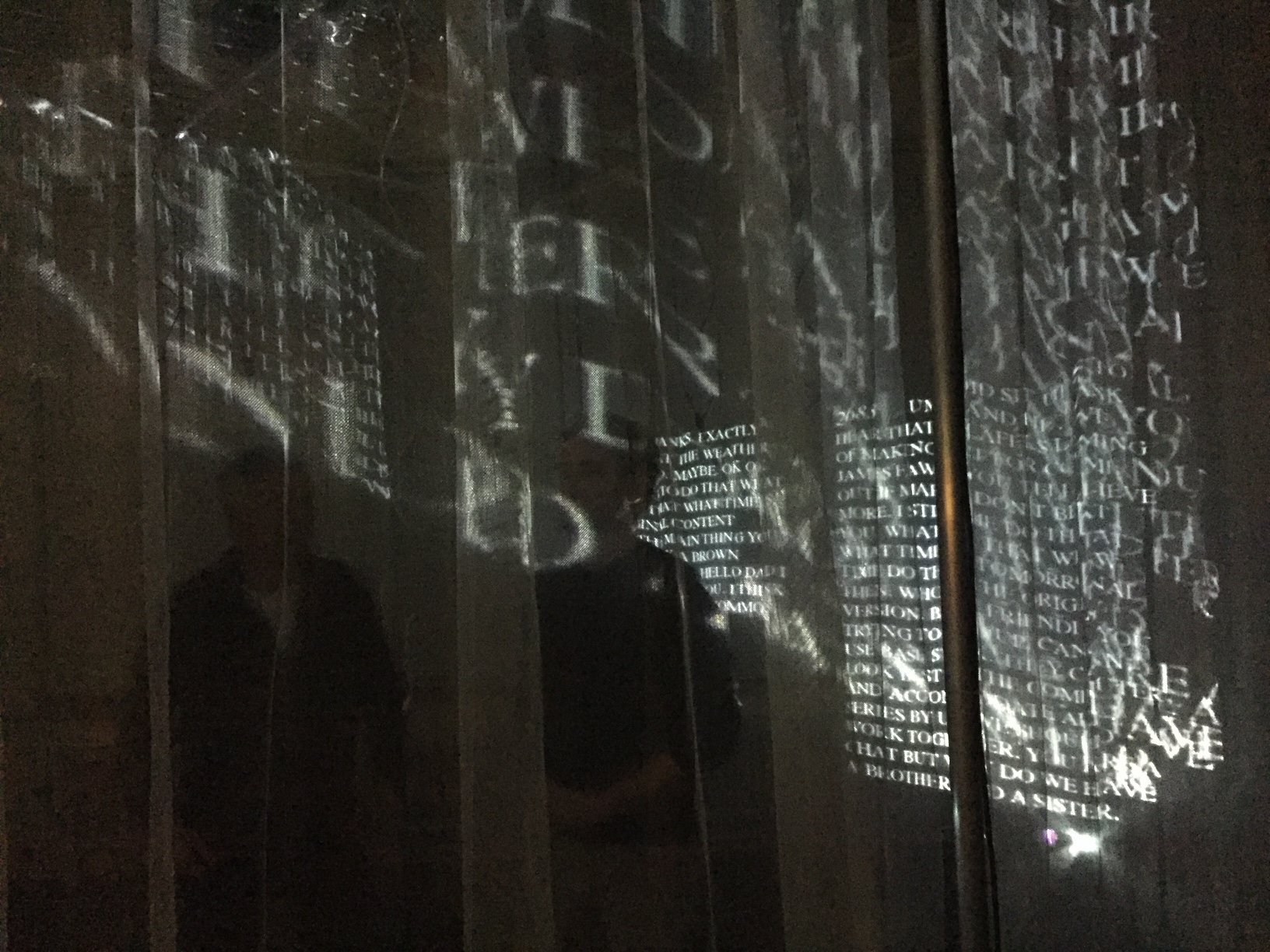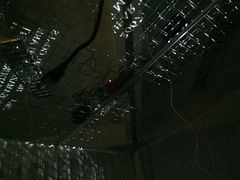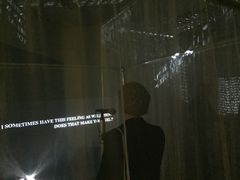User Generated Scripture
| User Generated Scripture | |
|---|---|
| Name | User Generated Scripture |
| Location | Eusebiuskerk, Arnhem |
| Date | 2017/10/27-2017/10/29 |
| Time | 17:00-22:00 |
| PeopleOrganisations | Oddstream, KunstLAB, Hackers & Designers |
| Type | Meetup |
| Web | Yes |
| No | |
During the month of April Hackers & Designers did a two week artist in residence Odd Stay via Nijmegen's Oddstream. The result of Odd Stay was presented during the Oddstream Art & Technology exhibition at the Eusebiuskerk in Arnhem.
During their residency James Bryan Graves & Selby Gildemacher of Hackers & Designers have developed a prototype of a new work in collaboration with KunstLAB Arnhem. Following the metaphor of a crowdsource religion, the work invites visitors to interact with a chatbot and to contribute to their input to the bigger installation. Here's how:
ww
This is the "user generated religion" installation. Once the Raspberry Pis are booted there should be an open network called "Wailing Wall". Join this network to make modifications and manage the pis.
WiFi
The installation requires internet. You can connect to a WiFi network as follows.
In the Terminal of your computer connect to the pi. Passwords are "arnhemarnhem".
$ ssh pi@10.1.1.1
Once connected to the pi. In nano Ctl+o is save, Ctl+x quits.
$ sudo nano /etc/wpa_supplicant/wpa_supplicant.conf
Change the file, ssid is the network name, psk is the network password.
network={
ssid="circa...dit"
psk="circa...dat"
priority=1
}
Reboot the pi.
$ sudo reboot
Shutdown the pis
$ ssh pi@10.1.1.2 "sudo poweroff"
$ ssh pi@10.1.1.1 "sudo poweroff"
The Chat Bot
The chatbot is based on the python version of Eliza and is in this repository in the directory ww/pi1/ww-conf. You can test the chat bot by running the following.
$ cd ww/pi1/ww-conf
$ python main.py
Edit the file bot.py to make changes to the chatbot. Once you are happy with it, copy it to the pi as follows.
$ scp bot.py pi@10.1.1.1:ww-conf
Restart the pi1.
$ ssh pi@10.1.1.1 "sudo reboot"
Visuals - editing HTML
All projections are simple HTML and CSS. You can edit the following files.
Pi 1
ww/pi1/ww-conf/index.html
ww/pi1/ww-conf/mz.css
Pi 2
ww/pi2/ww-heav/index.html
ww/pi2/ww-heav/ww.css
Test
You can test by running the following. You must be in the correct directory or folder for which ever pi you want to test (they both have their own server.sh).
$ sudo ./server.sh
You will need some data so run the following (only once).
$ mkdir /data
Create a file called "data" in that directory with text, can be any text.
In the browser: https://localhost/index.html for pi 1, or http://localhost/index.html for pi 2.
Copy changes to the pis.
$ scp ww/pi1/ww-conf/index.html pi@10.1.1.1:ww-conf
$ scp ww/pi1/ww-conf/mz.css pi@10.1.1.1:ww-conf
$ scp ww/pi2/ww-heav/index.html pi@10.1.1.2:ww-heav
$ scp ww/pi2/ww-heav/ww.css pi@10.1.1.2:ww-heav
Scripture
The scripture is saved and generated in a text file located at /data/scripture. Download it, print it, design it...whatever.
$ scp pi@10.1.1.2:/data/scripture .
Testing/Debugging USB
$ ssh pi@10.1.1.2
You can see add and remove events by running the following.
$ tail -f /var/log/usb.log


